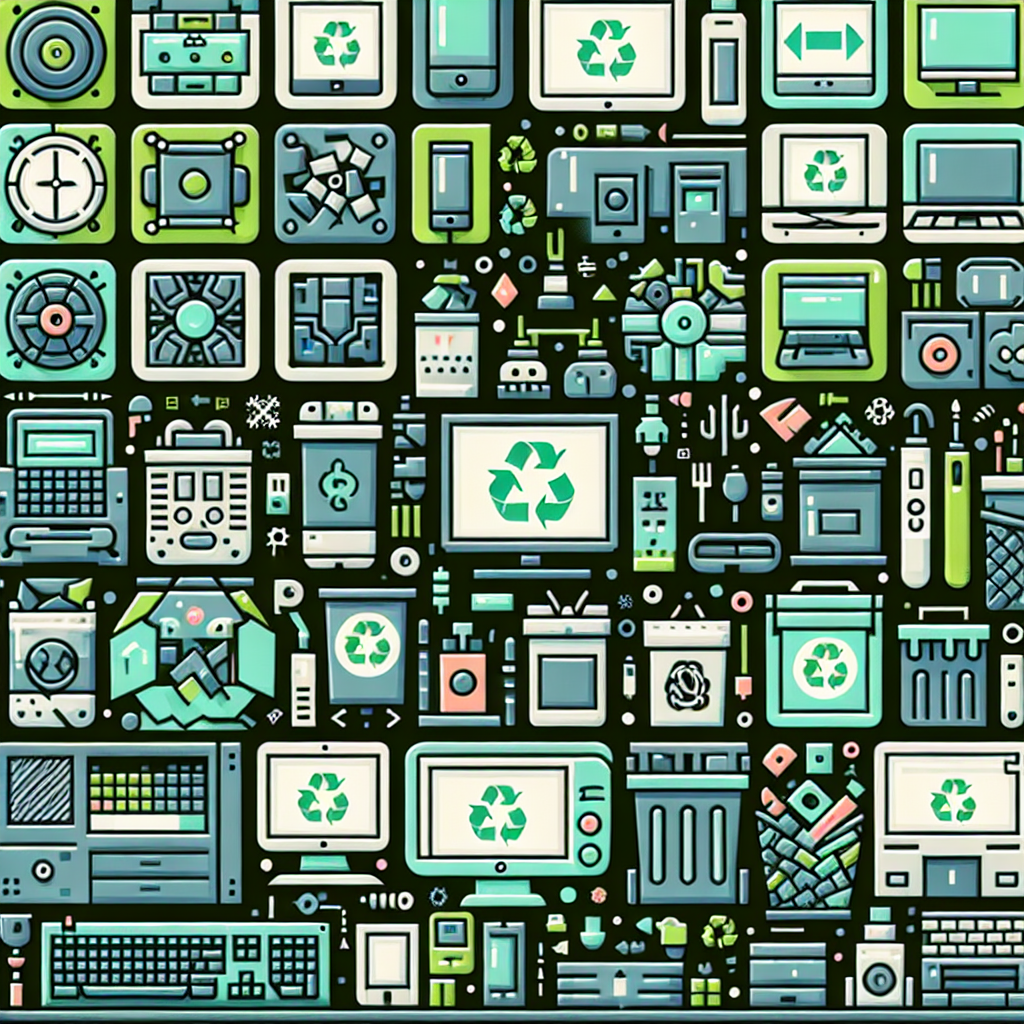Blog Ecobraz Eigre

What are the types of electronic waste and how should each be disposed of?
What is e-waste?
Electronic waste consists of disused or broken electronic devices such as computers, cell phones, televisions, among others. This waste contains hazardous materials which, if disposed of incorrectly, can cause damage to the environment and health.
Main types of e-waste
The types of e-waste vary depending on the device, but can be grouped into a few main categories:
1. Computers and accessories
This includes desktops, notebooks, mice, keyboards and monitors. These items contain heavy metals such as lead and mercury, as well as plastics and electronic components.
2. Cell phones and smartphones
They contain lithium-ion batteries, which are flammable and toxic. They also contain small electronic boards and sensitive screens.
3. Televisions and monitors
Mostly the old CRTs have cathode ray cathodes with phosphor and lead. More recent models have LCD or LED screens, which contain delicate components.
4. Electronic household appliances
Examples such as microwaves, DVD players, washing machines with electronic panels, among others. They contain circuits and parts that must be disposed of properly.
5. Batteries and cells
They are highly polluting due to the heavy metals and chemical compounds they release, which can contaminate soil and water.
How to properly dispose of each type of electronic waste
Computers and accessories
Should be delivered to specialized collection points or recycling centers. The components are dismantled to reuse the metals and recycle the plastics.
Cell phones and smartphones
To ensure safety, they should be sent to places that correctly dispose of the batteries for recycling or safe disposal, avoiding the risk of fire and pollution.
Televisions and monitors
CRT technology devices require specific care. They should be sent to certified recyclers who separate the hazardous materials, avoiding environmental contamination.
Electronic appliances
Need to be disposed of at specialized points, where the electronic components are correctly separated for recycling or reuse.
Batteries and cells
Should never be disposed of in ordinary garbage. There are specific selective collection points for batteries, ensuring that the toxic material is treated correctly.
Importance of correct disposal
Inadequate disposal of electronic waste can lead to soil and water contamination, as well as causing damage to human health. Recycling these materials also contributes to saving natural resources by avoiding the excessive extraction of metals.
Conclusion
Knowing the types of electronic waste and the appropriate processes for their disposal is fundamental to preserving the environment. Always try to deliver this waste to specialized collection points, respecting local regulations for recycling and safe disposal.

Deixe um comentário
O seu endereço de e-mail não será publicado. Campos obrigatórios são marcados com *